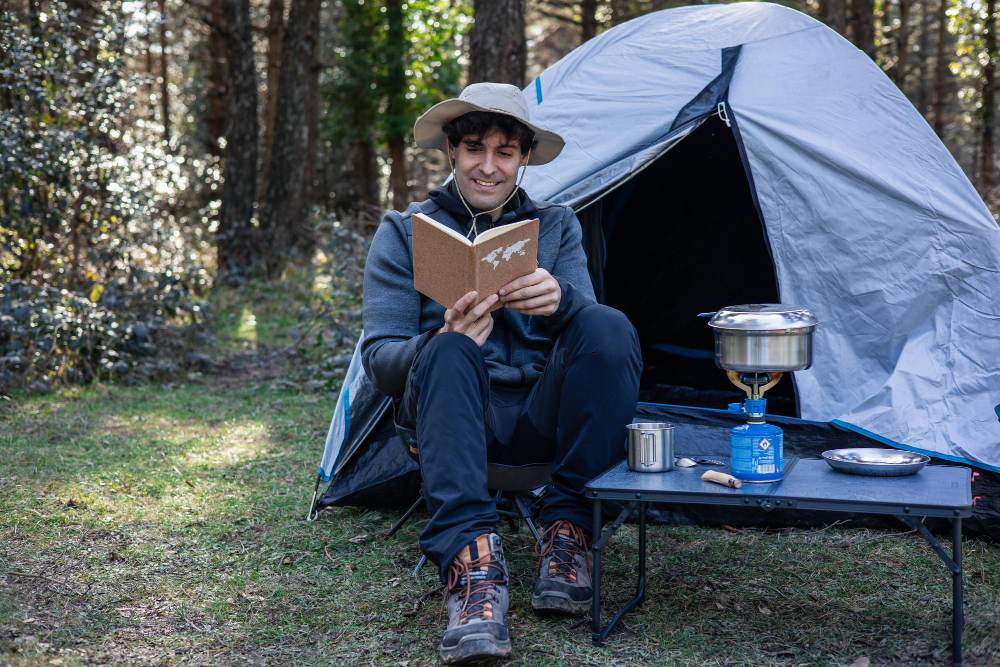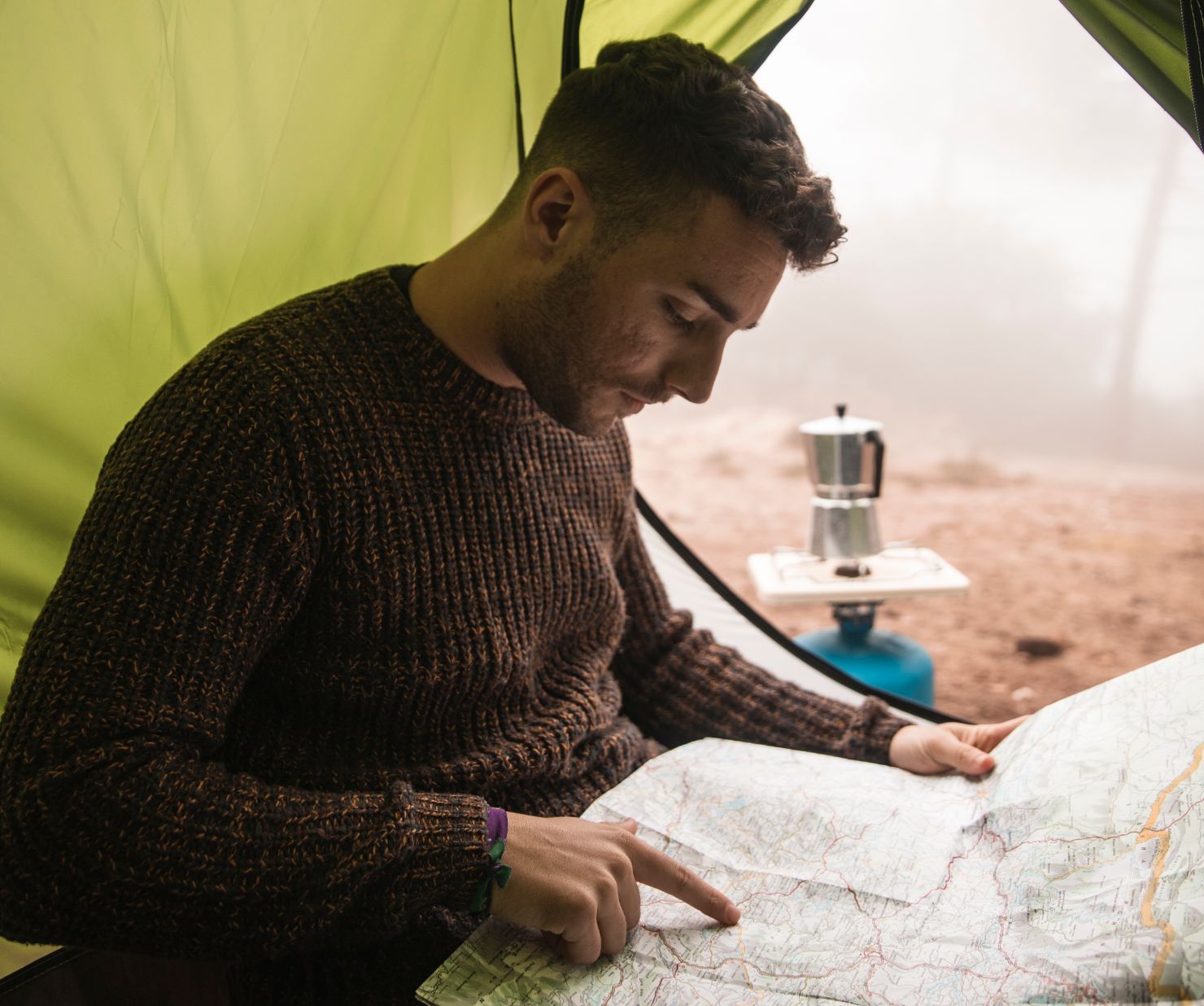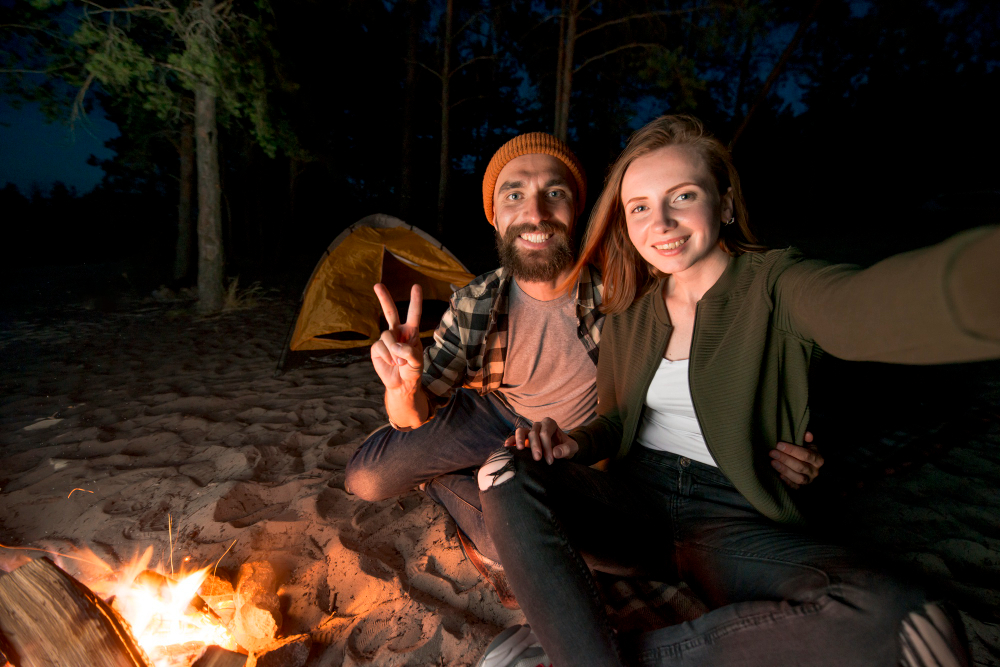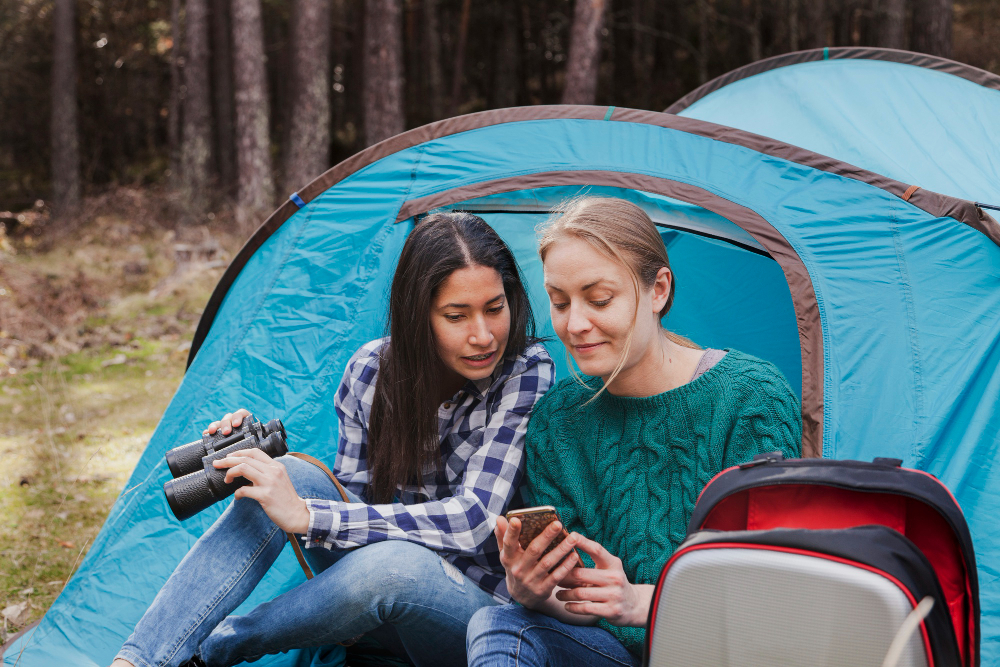
Camping Safety Tips: Stay Prepared in the Wilderness
Camping is an exhilarating way to connect with nature, but it's crucial to prioritize safety in the wilderness. Whether you're a seasoned camper or a beginner, these essential safety tips will help ensure your outdoor adventure is both enjoyable and secure.
1. Plan and Prepare
Proper planning is the foundation of a safe camping trip. Before you head out:
- Research your destination thoroughly
- Check weather forecasts and pack accordingly
- Inform someone of your travel plans and expected return date
- Familiarize yourself with the area's wildlife and potential hazards
- Obtain necessary permits and make reservations if required

Thorough planning is key to a safe and enjoyable camping experience
2. Pack a Comprehensive First-Aid Kit
A well-stocked first-aid kit is essential for any camping trip. Your kit should include:
- Bandages, gauze, and adhesive tape
- Antiseptic wipes and antibiotic ointment
- Pain relievers and any personal medications
- Tweezers and scissors
- Insect repellent and sunscreen
- Emergency blanket
- First-aid manual
3. Stay Hydrated and Pack Enough Food
Proper nutrition and hydration are crucial for your safety and well-being:
- Bring more water than you think you'll need
- Pack a water filtration system or purification tablets
- Include high-energy, non-perishable foods in your supplies
- Store food properly to avoid attracting wildlife
4. Practice Fire Safety
Campfires can be a lovely part of the camping experience, but they require careful management:
- Check local fire regulations and conditions before starting a fire
- Choose or create a proper fire pit away from overhanging branches
- Keep your fire small and manageable
- Never leave a fire unattended
- Fully extinguish your fire before leaving the site or going to sleep

Proper fire management is crucial for camping safety
5. Be Prepared for Wildlife Encounters
Respect wildlife and know how to handle potential encounters:
- Store food in airtight containers and use bear canisters if required
- Keep a clean campsite to avoid attracting animals
- Learn about the wildlife in your camping area and how to respond to encounters
- Carry bear spray in areas where bears are present
- Never feed or approach wild animals
6. Navigate Safely
Avoid getting lost by following these navigation tips:
- Carry detailed maps and a compass (and know how to use them)
- Bring a fully charged phone and a portable battery pack
- Consider carrying a GPS device or satellite communicator
- Stay on marked trails when hiking
- Pay attention to landmarks and your surroundings
7. Be Weather-Wise
Weather can change rapidly in the wilderness. Stay safe by:
- Checking weather forecasts before and during your trip
- Knowing the signs of incoming storms or severe weather
- Having appropriate gear for various weather conditions
- Seeking proper shelter during severe weather
- Being aware of the risks of hypothermia and heat exhaustion

Staying informed about weather conditions is crucial for camping safety
Conclusion: Safety First, Adventure Second
While camping offers incredible opportunities for adventure and connection with nature, safety should always be your top priority. By following these tips and staying prepared, you can minimize risks and focus on enjoying your outdoor experience to the fullest.
Remember, the key to a great camping trip is being well-prepared. For more camping advice, check out our guides on Essential Camping Gear for Beginners and How to Plan the Perfect Camping Trip. Don't forget to use our Camping Gear Trip Planner to ensure you have all the necessary safety equipment for your adventure!
Stay safe, be prepared, and enjoy your wilderness adventure!